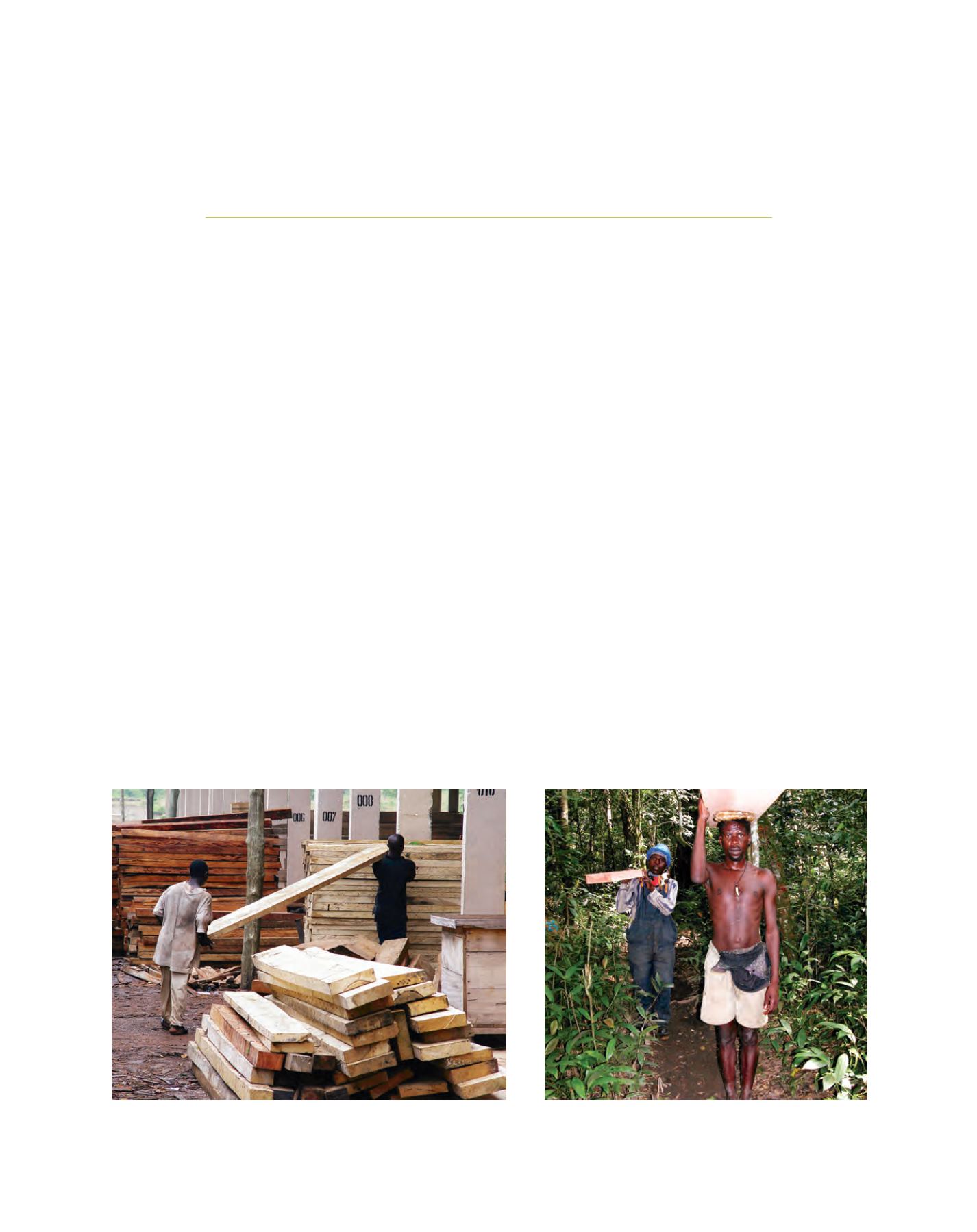

[
] 174
Promoting legal timber trade
for sustainable forest management
Marieke Wit and René Boot, Tropenbos International;
Ton van der Zon, Ministry of Foreign Affairs, Embassy of Ghana; Marnix Becking, Ministry of Foreign Affairs
and Rob Busink, Ministry of Economic Affairs, Agriculture and Innovation, the Netherlands
F
or the past 20 years, the Dutch Government Position Paper
on Tropical Forests (RTR) has guided the international
and bilateral forest-related policies of the Netherlands.
The Policy, signed in 1992 by five ministries, committed the
Dutch Government to a minimum annual financial contribu-
tion of €68 million towards the sustainable management of the
world’s forests, with at least one third of this amount earmarked
for tropical rainforests. The main objective of the RTR was ‘to
encourage the preservation of the tropical rainforests through
balanced and sustainable land and forest use, with a view to
halting the current rapid process of deforestation and other
environmental damage and degradation’. The focus has shifted
over the years from nature conservation towards sustainable
use and the economic importance of forest resources, as well as
increased integration of forest programmes in poverty reduction
strategies, the promotion of sustainably produced wood and
discouragement of trade in illegally harvested wood.
1
Over the last decade, there has been a growing awareness among
consumers and private enterprises in the Netherlands regarding the
impact of consumption on biodiversity in developing countries. In the
broader framework of international forest and biodiversity policies,
several ministries work together to make commodity
chains more sustainable, with a focus on greening the
trade chains of those products that currently contribute
to deforestation (such as timber, palm oil and soy) and
on increasing productivity and efficiency of agriculture to
reduce the pressure on existing forest areas. High priority
is given to the EU’s Forest Law Enforcement, Governance
and Trade (FLEGT) process in combating import of ille-
gally harvested timber.
Since 2010, the development cooperation policy of the
Netherlands has undergone a substantial reorientation
with an emphasis on the role of economic investment
and entrepreneurship as the engine for development.
Development aid will focus on four themes, which
reflect Dutch specific expertise: 1. Water, 2. Food
Security, 3. Security & the legal order, and 4. Sexual &
Reproductive Health and Rights. The number of partner
countries has been reduced to 15, mainly countries in
Africa.
2
The formal sectoral policy on tropical forests has
been transformed into a more trans-sectoral approach
to forest ecosystems. Sustainable supply chains are
still high on the agenda and are supported through the
Chainsaw milled lumber is openly traded in Ghana’s lumber markets, such as the
Sokoban market in Kumasi
Chainsaw milling provides a lot of employment to many people in
Ghana, for example as carrier of lumber out of the forest
Image: Tropenbos International
Image: Tropenbos International
















